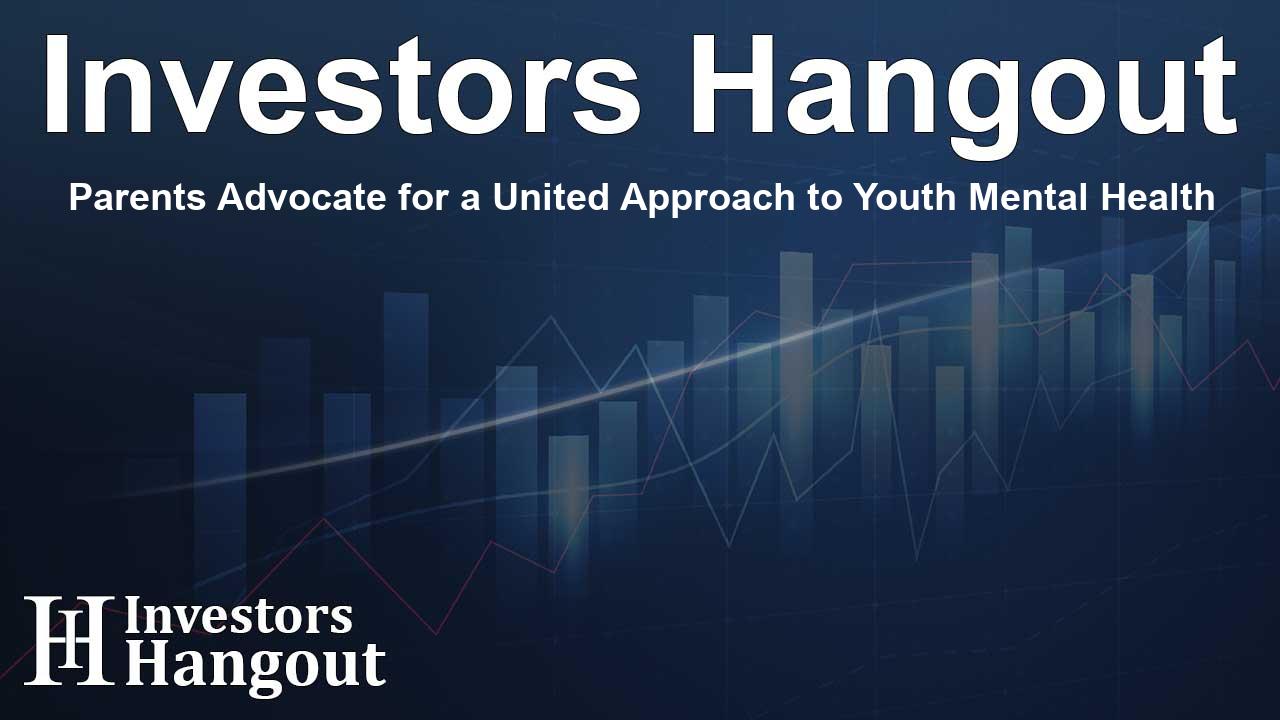Parents Advocate for a United Approach to Youth Mental Health

Parents Advocate for a United Approach to Youth Mental Health
Recent research highlights parental concerns about youth mental health and the need for comprehensive strategies to address these challenges.
The Coalition to Empower our Future has shared intriguing findings from a survey that reflects the growing worries among parents regarding the mental well-being of youth. In the research, parents express a desire for a multifaceted approach that equips them with the tools and resources necessary to support their children.
In light of Mental Health Awareness Month, the Coalition engaged in discussions with parents nationwide. The results came from a survey involving 2,320 parents across various states, emphasizing an alarming trend: nearly 80% of parents believe in adopting a combined approach to tackle youth mental health issues.
Understanding Parents' Concerns
Glen Weiner, the executive director of the Coalition to Empower our Future, stated, "This research highlights the reality many of us as parents face: deep concern over our kids' mental health and a shared understanding that we need thoughtful and comprehensive solutions." He noted the myriad pressures children face today and remarked that the experiences of youth vary significantly, making it clear that isolated solutions will not suffice.
The findings indicate that parents overwhelmingly view youth mental health as a declining issue that will not resolve without proactive intervention. Many attribute the growing challenge to various factors, including bullying, social media, academic pressures, and family instability. Furthermore, while parents recognize the importance of addressing specific issues, they strongly feel that a broad approach that considers family dynamics, peer interactions, and access to mental health resources is essential to finding effective solutions.
Insights from Parents
Parents across the nation have shared their perspectives regarding the struggles with youth mental health:
- "Teenagers are acutely aware of their surroundings, and after the pandemic, they missed a critical developmental phase."
- "The situation is getting worse. Issues like anxiety and cyberbullying are adversely impacting our children."
- "Even if a solution is found, it might only work temporarily, and as new challenges arise, we must remain adaptable in our approaches."
The survey illustrates that many parents feel overwhelmed when it comes to supporting their children’s mental health, largely due to the lack of access to reliable resources. For those in search of affordable mental health care, finding suitable assistance has proven to be a daunting task. The findings highlight the intricate nature of the issue and the urgent need for continued dialogue and collaboration among families, educators, and community members.
Creating a Supportive Environment
Support systems that integrate the concerns expressed by parents are critical. By fostering open discussions, communities can create an environment where youth feel safe expressing their challenges. Schools and local organizations can also play a pivotal role by offering mental health resources that are accessible and promote healthy coping mechanisms.
Engagement from various stakeholders, including mental health professionals, is important. Collaborative efforts can help design tailored programs and services that resonate with the unique needs of youth and their families. These initiatives should focus not only on treatment but also on prevention strategies that create long-lasting positive impacts on overall youth well-being.
Long-Term Solutions to Youth Mental Health
Understanding youth mental health requires continuous efforts and commitment. It is essential to foster resilience and coping strategies among young individuals. Programs focused on mental wellness can teach effective management techniques, enabling youth to navigate life's challenges more effectively.
Stakeholders need to ensure that families have access to the necessary resources and expert advice. Educational campaigns can further equip parents with useful insights, helping them feel more confident in their ability to support their children through challenging times.
Through collaboration, advocacy, and informed strategies, communities can contribute to developing comprehensive solutions that secure a healthier future for youth mental health.
Frequently Asked Questions
What does the Coalition to Empower our Future aim to achieve?
The Coalition seeks to unify efforts among stakeholders to create effective solutions addressing the multifaceted challenges affecting youth mental health.
Why are parents concerned about youth mental health?
Parents worry about deteriorating mental health among youth due to various pressures, including social media influence, academic stress, and bullying.
How can communities support youth mental wellness?
Communities can provide access to resources, create supportive environments, and foster open dialogues about mental health to promote well-being.
What role do schools play in addressing mental health issues?
Schools can implement programs that educate students about mental health, promote awareness, and provide access to counseling services.
What strategies can parents use to support their children's mental health?
Parents can foster an environment of open communication, seek reliable resources, and encourage coping strategies that enhance resilience.
About The Author
Contact Riley Hayes privately here. Or send an email with ATTN: Riley Hayes as the subject to contact@investorshangout.com.
About Investors Hangout
Investors Hangout is a leading online stock forum for financial discussion and learning, offering a wide range of free tools and resources. It draws in traders of all levels, who exchange market knowledge, investigate trading tactics, and keep an eye on industry developments in real time. Featuring financial articles, stock message boards, quotes, charts, company profiles, and live news updates. Through cooperative learning and a wealth of informational resources, it helps users from novices creating their first portfolios to experts honing their techniques. Join Investors Hangout today: https://investorshangout.com/
The content of this article is based on factual, publicly available information and does not represent legal, financial, or investment advice. Investors Hangout does not offer financial advice, and the author is not a licensed financial advisor. Consult a qualified advisor before making any financial or investment decisions based on this article. This article should not be considered advice to purchase, sell, or hold any securities or other investments. If any of the material provided here is inaccurate, please contact us for corrections.
